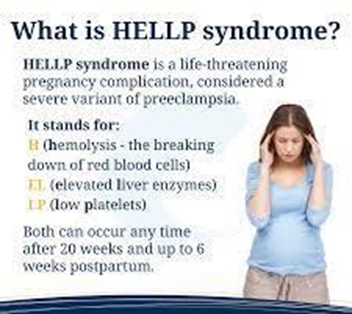During her gynecologic checkup, a 30-year-old client states that recently she has been experiencing abdominal cramping and pain 3-4 days before and during her menstrual periods. The patient also complains of nausea, vomiting, headache, and irritability. The nurse would document these complaints as:
Select one:
Dysmenorrhea.
Dyspareunia.
Amenorrhea.
Premenstrual syndrome (PMS).
The Correct Answer is D
a. Dysmenorrhea refers to painful menstruation, which may be accompanied by abdominal cramping and pain.
b. Dyspareunia refers to painful sexual intercourse, which is not described in the scenario.
c. Amenorrhea refers to the absence of menstrual periods, which is not described in the scenario.
d. The symptoms described in the scenario are consistent with premenstrual syndrome, which includes physical and emotional symptoms such as abdominal cramping and pain, nausea, vomiting, headache, and irritability that occur before and during menstruation.
Nursing Test Bank
Naxlex Comprehensive Predictor Exams
Related Questions
Correct Answer is C
Explanation
a. The client should also be placed in Trendelenburg or knee-chest position to reduce cord compression.
b. This is not the first action to take when the umbilical cord is prolapsed.
c. This is a medical emergency that requires immediate intervention to prevent fetal hypoxia and death. The nurse should insert a gloved hand into the vagina and apply upward pressure on the presenting part to lift it off the cord until delivery.
d. This may be necessary if the cord compression cannot be relieved, but the first priority is to relieve the cord compression.
Correct Answer is C
Explanation
a. Idiopathic thrombocytopenia is a condition characterized by a low platelet count without an identifiable cause, which is not the case in this scenario.
b. Disseminated intravascular coagulation (DIC) is a condition characterized by widespread activation of the clotting system, which is not the case in this scenario.
c. HELLP syndrome is a serious complication of preeclampsia characterized by hemolysis, elevated liver enzymes, and low platelet count.
d. Eclampsia is a severe complication of preeclampsia characterized by seizures, which is not the case in this scenario.

Whether you are a student looking to ace your exams or a practicing nurse seeking to enhance your expertise , our nursing education contents will empower you with the confidence and competence to make a difference in the lives of patients and become a respected leader in the healthcare field.
Visit Naxlex, invest in your future and unlock endless possibilities with our unparalleled nursing education contents today
Report Wrong Answer on the Current Question
Do you disagree with the answer? If yes, what is your expected answer? Explain.
Kindly be descriptive with the issue you are facing.
